“This is going to hurt you more than it hurts me.”That’s not a threat that Canada wields very often. It was not a threat at all, the ambassador assures me.But in Donald Trump’s D.C., lots of old friends are suddenly finding themselves knocked on their heels. None more so than Canada.Canadian Ambassador to the United States David MacNaughton is sitting across from me in his circular office, leaning back in an armchair. I get the view out of his windows — his office is mostly windows — which means I am directly staring at the U.S. Capitol buildings as MacNaughton walks me through exactly how the Canadian government is trying to find a handle on an unpredictable administration.“If some of the more anti-trade or anti-Canada things happen, we will defend ourselves. We will defend our industry,” MacNaughton says.He thinks over his words for a beat. “That’s not meant to sound like a threat.”But Canada is, whether it likes to admit it or not, issuing a shot across the bow to an administration that has made no secret that it sees its trade deals, and its international economic relationships, as anathema.Canada, at first, was sure it had made inroads to neutralize the trade toxicity. A high-profile visit from the prime minister brought glamor and normalcy to the early days of Trump’s tenure when uncertainty and confusion racked the halls of the White House.Trudeau launched a women-in-business initiative with Ivanka Trump. Gerald Butts and Katie Telford, right-and-left-hands to the prime minister, held tete-a-tetes with Steve Bannon and Jared Kushner, their rough equivalents in the Trump administration. Trudeau launched a charm offensive, sending a veritable army of officials south of the border to make connections. Ottawa even came out and welcomed the chance to “modernize” the North American Free Trade Agreement, a beloved punching bag for the black sheep political candidate. Things seemed normal. Or, at least, normal-ish.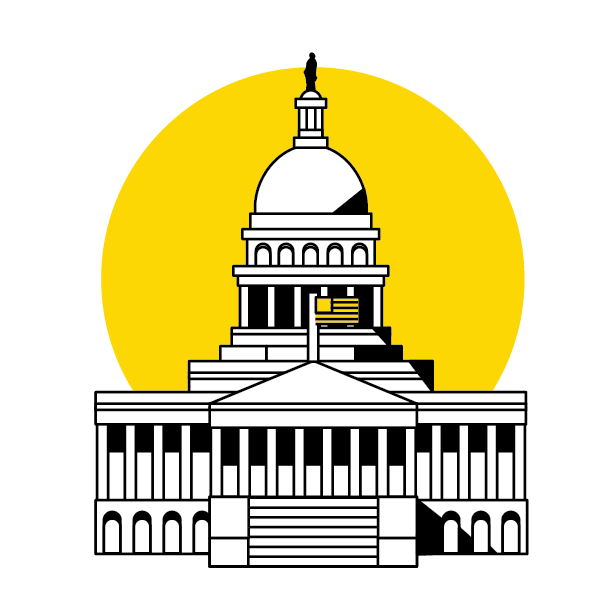 Trump’s administration, however, has been anything but normal.While Ottawa waited for official notice of Washington’s intention to launch renegotiations for the tripartite agreement, a very different notice was back-channeled: Trump was set to announce America’s withdrawal from NAFTA by the end of April.Whispers went out on a Wednesday. Hasty calls with Trump were arranged. The executive order announcing America’s plans to shred the agreement was set to be signed by Saturday. But on those Wednesday-night calls, Trump later told reporters, his counterparts convinced him to back down.I ask MacNaughton if Trump’s plans to announce withdrawal from NAFTA is evidence of a good working relationship.“This is not a presidency that is…” MacNaughton pauses. “Every president brings their own style to it.”Trudeau can’t just sit around and hope that the level heads in the White House make Canada’s case for him. So the prime minister has tasked a phalanx of Canadian officials and ministers to fan out across America with an eye to win friends and influence people on a state-by-state basis.At the centre of the battle to advance Canada’s interests in Trump’s America is Trudeau’s point man for the job: Retired general Andrew Leslie.“Washington is the nexus of power, agreed, but it is equally, if not even more critical to get out of Washington,” Leslie tells VICE News.He chats with me over the phone on a Wednesday afternoon, standing in the government foyer, the long ornate room that adjoins the government side of the House of Commons. After our call, he has to dash through the wooden doors to attend Question Period. He also serves as the parliamentary secretary to the minister of foreign affairs.Leslie was tapped to be the central manager for the Trudeau lobbying effort in the United States. He’s describing how, after Trump’s upset election, Ottawa realized that this was a “game changer,” as he puts it.
Trump’s administration, however, has been anything but normal.While Ottawa waited for official notice of Washington’s intention to launch renegotiations for the tripartite agreement, a very different notice was back-channeled: Trump was set to announce America’s withdrawal from NAFTA by the end of April.Whispers went out on a Wednesday. Hasty calls with Trump were arranged. The executive order announcing America’s plans to shred the agreement was set to be signed by Saturday. But on those Wednesday-night calls, Trump later told reporters, his counterparts convinced him to back down.I ask MacNaughton if Trump’s plans to announce withdrawal from NAFTA is evidence of a good working relationship.“This is not a presidency that is…” MacNaughton pauses. “Every president brings their own style to it.”Trudeau can’t just sit around and hope that the level heads in the White House make Canada’s case for him. So the prime minister has tasked a phalanx of Canadian officials and ministers to fan out across America with an eye to win friends and influence people on a state-by-state basis.At the centre of the battle to advance Canada’s interests in Trump’s America is Trudeau’s point man for the job: Retired general Andrew Leslie.“Washington is the nexus of power, agreed, but it is equally, if not even more critical to get out of Washington,” Leslie tells VICE News.He chats with me over the phone on a Wednesday afternoon, standing in the government foyer, the long ornate room that adjoins the government side of the House of Commons. After our call, he has to dash through the wooden doors to attend Question Period. He also serves as the parliamentary secretary to the minister of foreign affairs.Leslie was tapped to be the central manager for the Trudeau lobbying effort in the United States. He’s describing how, after Trump’s upset election, Ottawa realized that this was a “game changer,” as he puts it.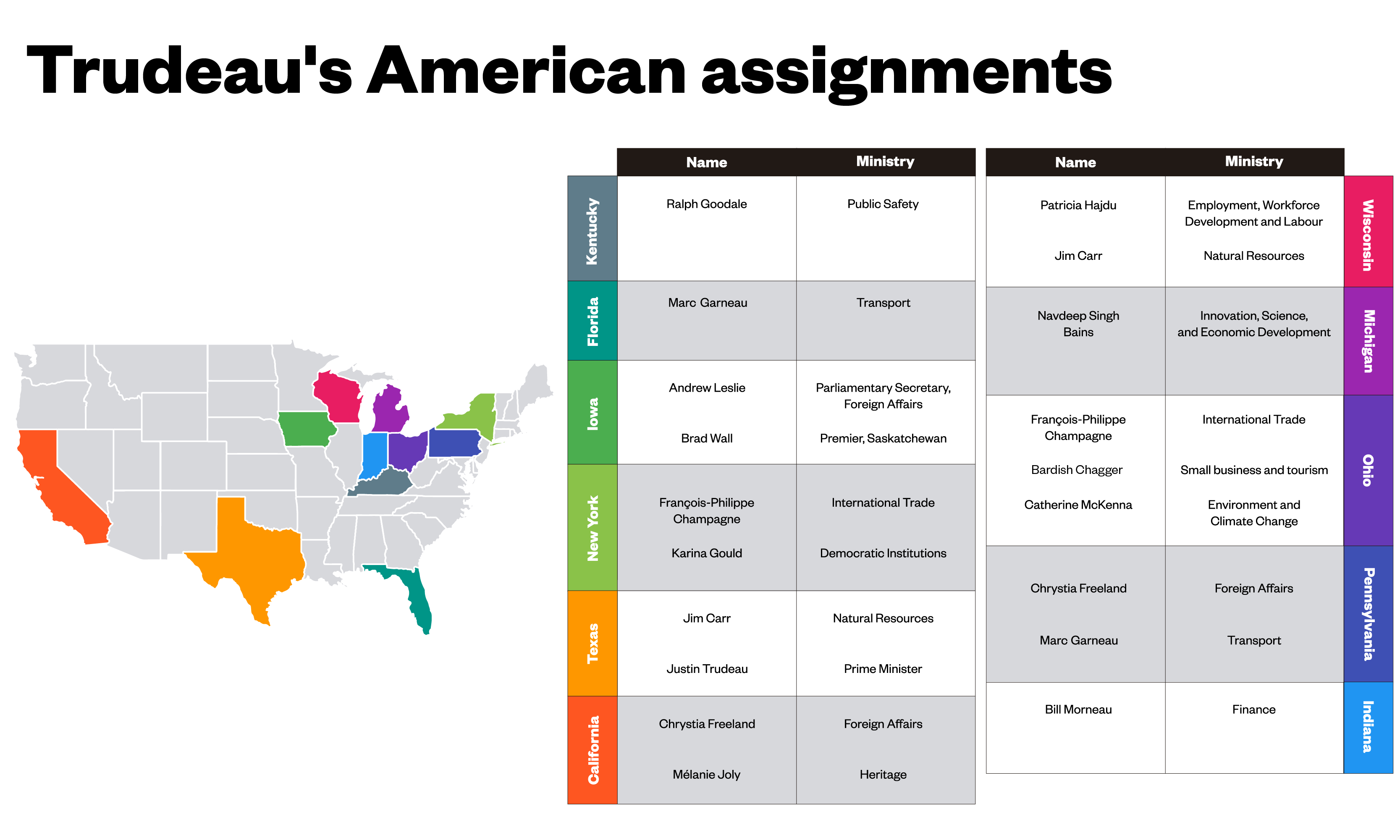 As the source in Trudeau’s office points out, those assignments weren’t made at random. Wisconsin is home to House of Representatives speaker Paul Ryan. Vice President Mike Pence was governor of Indiana. Senate Majority Leader Mitch McConnell is the senior senator for Kentucky.In some cases, ministers won assignments by their connections. Transport Minister Marc Garneau, for example, has been making the rounds in Florida, thanks to the fact that he worked during his decades-long career as an astronaut.
As the source in Trudeau’s office points out, those assignments weren’t made at random. Wisconsin is home to House of Representatives speaker Paul Ryan. Vice President Mike Pence was governor of Indiana. Senate Majority Leader Mitch McConnell is the senior senator for Kentucky.In some cases, ministers won assignments by their connections. Transport Minister Marc Garneau, for example, has been making the rounds in Florida, thanks to the fact that he worked during his decades-long career as an astronaut.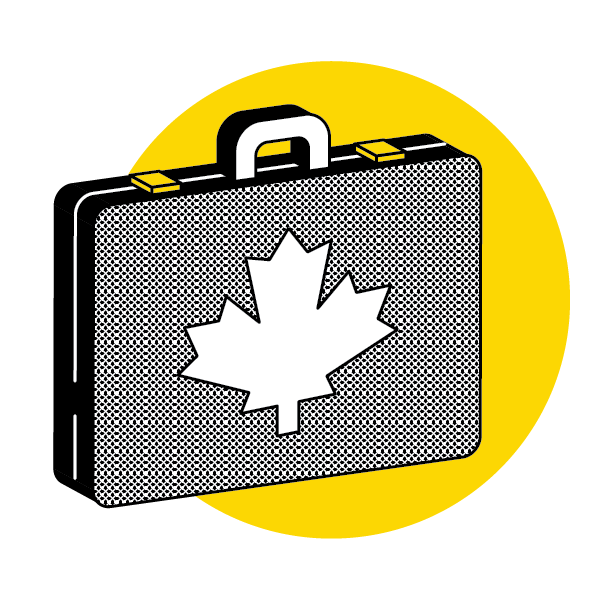 “Trump tax plans threaten vibrant economic partnerships in Florida, an official says,” reads the April 22 edition of the Tampa Bay Times, quoting Garneau.“A top Canadian cabinet official visited Indiana with a message: That’s a nice economy you’ve got there, America, and it’d be a shame if something happened to it,” wrote one Indianapolis Star columnist of Morneau’s visit.Trudeau’s office confirmed that it’s no coincidence that many of the states specifically targeted by the Trudeau government were swing states. Particularly, they were states that Trump flipped red in order to secure his much-coveted win in the electoral college.While Canada would never cop to campaigning against Trump in the crucible of the president’s electoral success, Ottawa is making little secret of the fact that it wants to let Americans know that ripping up NAFTA, slapping tariffs on the border, hiking taxes on imported goods: It’s going to hurt.“We’re here to help,” he tells them. “How can we help you create more jobs?”Paul Frazer has some advice for Ottawa.I meet the long-time diplomat at his go-to lunch spot, around the corner from the White House. Frazer was practically born on the border, hailing from the Ontario side of Niagara Falls. He has, through the years, been posted to an array of diplomatic gigs, from Warsaw and Prague, to New York and Ottawa. He’s now a D.C.-based consultant, who handles trade files for a bevy of clients. And he’s philosophical about the whole thing. A lot of it, he contends, is just the way things go.“You don’t have friends in this city,” Frazer says, reciting an old adage. “You have allies.” He holds up a fork. “These people want one thing.” He holds up a knife. “These people want another.”Canada has long been able to stay out of that fray. And when it’s jumped into it, there’s been less-than-stellar results.Trudeau seems intent on not making the same mistakes as Harper. As Frazer points out, Canada can be the country of “no.” America asks for more market access for dairy. Canada says “no.” America asks for tariffs on lumber. Canada says “no.” America asks for Canadian support for the war in Iraq. Canada says “no.” The list can go on.Another piece of Frazer advice? Get some perspective, and get out of D.C. Too often — and Frazer knows this all too well — a Canadian premier, or cabinet minister, or senior official will show up in Congress and talk about Canadian jobs. Canadian manufacturing. Canadian natural resources.Unless your argument is a direct pitch on how the policy or proposal at hand affects the American people, and how your solution will benefit them, you may as well be ordering steak in a vegan restaurant.But having a nice pitch isn’t enough, Frazer says.“In the drawer, you need a few cudgels.”MacNaughton characterizes the lobbying effort across America as a matter of getting the facts out. Ottawa’s crusade in the Capitol and across the 50 states is, to borrow a new yet already-tired trope, a battle against alternative facts and fake news.And it’s been a busy one. According to statistics provided by the Canadian embassy, envoys of the Canadian government — the prime minister, cabinet ministers, members of Parliament, provincial premiers — have made over 100 trips to the U.S. Capitol from Trump’s inauguration in January to early May. The embassy has logged 215 meetings, including 11 members of Trump’s cabinet, over 150 members of Congress, and dozens of state governors.If the economic nationalists of the Trump administration win out, the results would be economically catastrophic for both sides of the border — that is the message the Canadian embassy has been aggressive in getting out.
“Trump tax plans threaten vibrant economic partnerships in Florida, an official says,” reads the April 22 edition of the Tampa Bay Times, quoting Garneau.“A top Canadian cabinet official visited Indiana with a message: That’s a nice economy you’ve got there, America, and it’d be a shame if something happened to it,” wrote one Indianapolis Star columnist of Morneau’s visit.Trudeau’s office confirmed that it’s no coincidence that many of the states specifically targeted by the Trudeau government were swing states. Particularly, they were states that Trump flipped red in order to secure his much-coveted win in the electoral college.While Canada would never cop to campaigning against Trump in the crucible of the president’s electoral success, Ottawa is making little secret of the fact that it wants to let Americans know that ripping up NAFTA, slapping tariffs on the border, hiking taxes on imported goods: It’s going to hurt.“We’re here to help,” he tells them. “How can we help you create more jobs?”Paul Frazer has some advice for Ottawa.I meet the long-time diplomat at his go-to lunch spot, around the corner from the White House. Frazer was practically born on the border, hailing from the Ontario side of Niagara Falls. He has, through the years, been posted to an array of diplomatic gigs, from Warsaw and Prague, to New York and Ottawa. He’s now a D.C.-based consultant, who handles trade files for a bevy of clients. And he’s philosophical about the whole thing. A lot of it, he contends, is just the way things go.“You don’t have friends in this city,” Frazer says, reciting an old adage. “You have allies.” He holds up a fork. “These people want one thing.” He holds up a knife. “These people want another.”Canada has long been able to stay out of that fray. And when it’s jumped into it, there’s been less-than-stellar results.Trudeau seems intent on not making the same mistakes as Harper. As Frazer points out, Canada can be the country of “no.” America asks for more market access for dairy. Canada says “no.” America asks for tariffs on lumber. Canada says “no.” America asks for Canadian support for the war in Iraq. Canada says “no.” The list can go on.Another piece of Frazer advice? Get some perspective, and get out of D.C. Too often — and Frazer knows this all too well — a Canadian premier, or cabinet minister, or senior official will show up in Congress and talk about Canadian jobs. Canadian manufacturing. Canadian natural resources.Unless your argument is a direct pitch on how the policy or proposal at hand affects the American people, and how your solution will benefit them, you may as well be ordering steak in a vegan restaurant.But having a nice pitch isn’t enough, Frazer says.“In the drawer, you need a few cudgels.”MacNaughton characterizes the lobbying effort across America as a matter of getting the facts out. Ottawa’s crusade in the Capitol and across the 50 states is, to borrow a new yet already-tired trope, a battle against alternative facts and fake news.And it’s been a busy one. According to statistics provided by the Canadian embassy, envoys of the Canadian government — the prime minister, cabinet ministers, members of Parliament, provincial premiers — have made over 100 trips to the U.S. Capitol from Trump’s inauguration in January to early May. The embassy has logged 215 meetings, including 11 members of Trump’s cabinet, over 150 members of Congress, and dozens of state governors.If the economic nationalists of the Trump administration win out, the results would be economically catastrophic for both sides of the border — that is the message the Canadian embassy has been aggressive in getting out.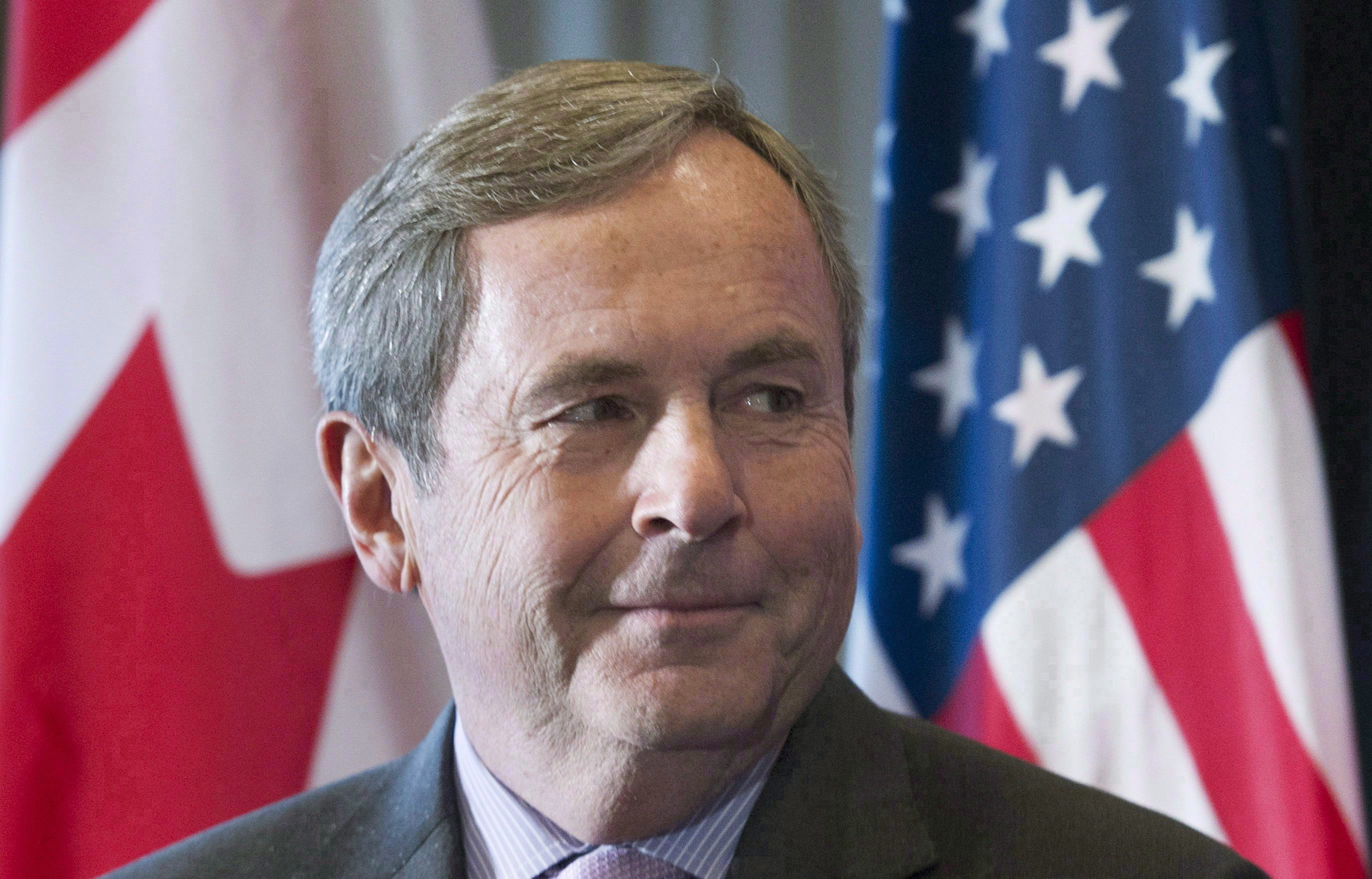 In a series of hand-outs, graphics, and information sheets, the Canadian office in D.C. has worked to cram as much of the complex trade relationship into a small area. It’s very condensed propaganda.“The jobs and wealth have been stripped from our country year after year, decade after decade, trade deficit upon trade deficit,” Trump said in signing an order mandating a review of America’s trade policy.The embassy handout counters: “Canada buys more from the United States than it does from any other nation.”In a February meeting at the White House, Trump told the CEO of United States Steel: “We approved, as you know, the Keystone pipeline and Dakota, but they have to buy … steel made in this country.”Again, Canada prepared a counter-point in April: “The U.S. and Canadian steel industries are deeply integrated with significant cross-border operations. Many U.S. firms rely on Canadian iron and steel imports,” reads one sheet, entitled “Canada-U.S. Steel Trade: Fair, Integrated, and Prosperous.” Canada won out on that one, with Trump later exempting Keystone from the steel requirement.Yet this behind-the-scenes information campaign has run into mixed results. An effort to convince the Trump administration that Canadian regulation was not to blame for a smattering of Wisconsin and New York dairy farmers losing out on Canadian business fell on deaf ears, as Trump energized a midwest rally with vows to punish Ottawa for its unfair agricultural trade practises.So must Canada meet Trump on his own battlefield: Twitter? Fox News?
In a series of hand-outs, graphics, and information sheets, the Canadian office in D.C. has worked to cram as much of the complex trade relationship into a small area. It’s very condensed propaganda.“The jobs and wealth have been stripped from our country year after year, decade after decade, trade deficit upon trade deficit,” Trump said in signing an order mandating a review of America’s trade policy.The embassy handout counters: “Canada buys more from the United States than it does from any other nation.”In a February meeting at the White House, Trump told the CEO of United States Steel: “We approved, as you know, the Keystone pipeline and Dakota, but they have to buy … steel made in this country.”Again, Canada prepared a counter-point in April: “The U.S. and Canadian steel industries are deeply integrated with significant cross-border operations. Many U.S. firms rely on Canadian iron and steel imports,” reads one sheet, entitled “Canada-U.S. Steel Trade: Fair, Integrated, and Prosperous.” Canada won out on that one, with Trump later exempting Keystone from the steel requirement.Yet this behind-the-scenes information campaign has run into mixed results. An effort to convince the Trump administration that Canadian regulation was not to blame for a smattering of Wisconsin and New York dairy farmers losing out on Canadian business fell on deaf ears, as Trump energized a midwest rally with vows to punish Ottawa for its unfair agricultural trade practises.So must Canada meet Trump on his own battlefield: Twitter? Fox News?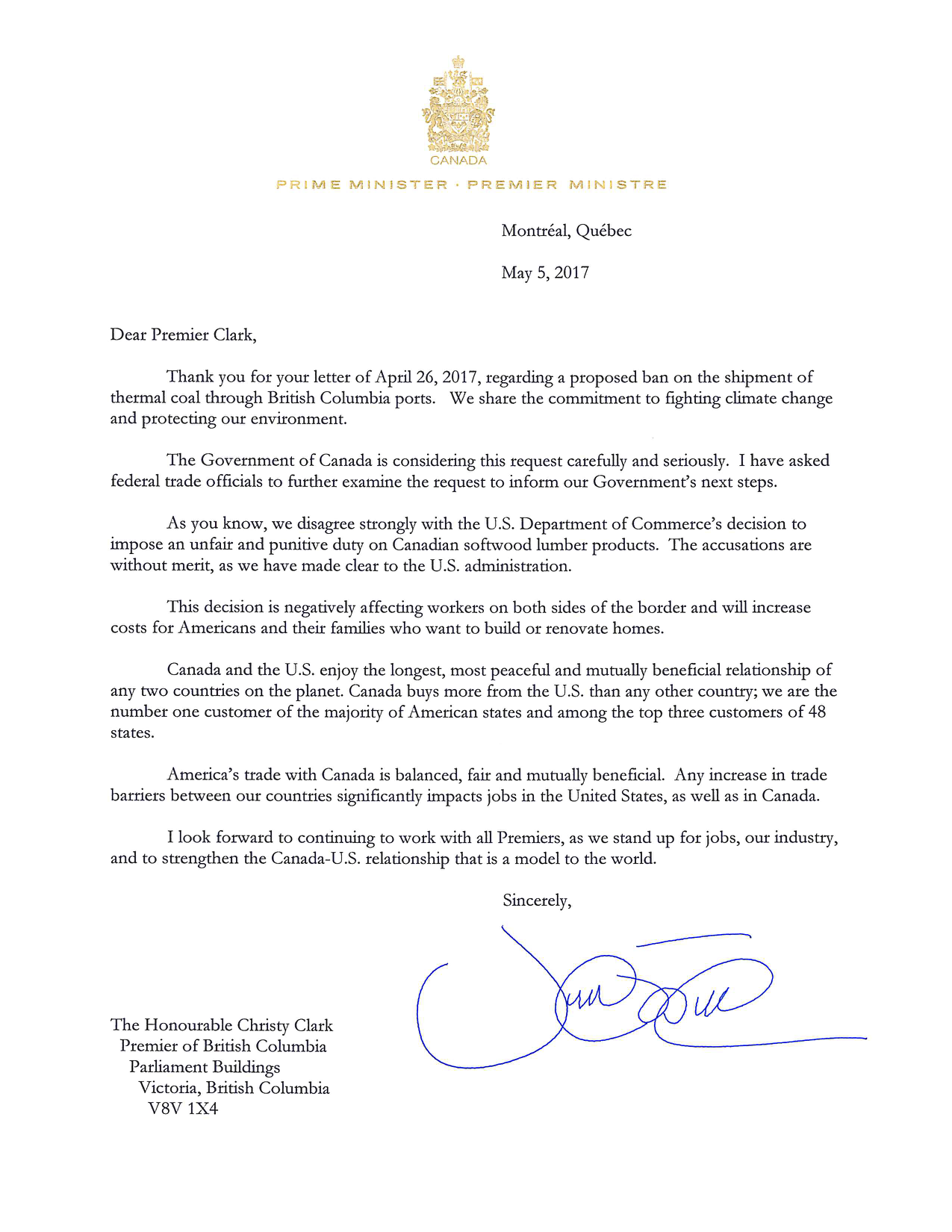 Part of that strategy appeared to come to fruition last week, when Trudeau wrote a letter vowing action against America for its decision to slap duties on Canadian lumber imports. The details of that letter, which included a threat to ban exporting coal through British Columbia, were leaked to the Canadian Press on Friday. A source also told Reuters that slapping duties on imports, including wine, from Oregon were also on the table.But dealing with the Art of the Deal administration is uncharted territory. Commerce Secretary Wilbur Ross, thought to be a more level-headed and Canadian-friendly member of Trump’s cabinet, came out in a statement over the weekend slapping down the threats as “inappropriate.”When I meet Congressman Brian Higgins in his office on Capitol Hill, he seems oddly excited for a New York Democrat in the age of Trump.But his party had just won a string of surprising victories in a budget battle with the Trump administration, which showed itself to be a legislative novice in the process. The Democrats managed to roll back a litany of deep cuts to various parts of the U.S. government, and while he says it’s hardly a win, it’s about as close as the Democrats have gotten since their drubbing last November.What the budget symbolizes for Higgins is a very important lesson for the Democrats, for Canada, and for anyone else looking to unlock the complexity of Trump’s Washington: “He’s losing credibility every day,” Higgins says. “Republicans don’t fear him.”A president with little clout in Congress, especially when his party controls both chambers, is an unusual situation. It means that “Congress is exerting its influence,” Higgins says. “We went around him.”
Part of that strategy appeared to come to fruition last week, when Trudeau wrote a letter vowing action against America for its decision to slap duties on Canadian lumber imports. The details of that letter, which included a threat to ban exporting coal through British Columbia, were leaked to the Canadian Press on Friday. A source also told Reuters that slapping duties on imports, including wine, from Oregon were also on the table.But dealing with the Art of the Deal administration is uncharted territory. Commerce Secretary Wilbur Ross, thought to be a more level-headed and Canadian-friendly member of Trump’s cabinet, came out in a statement over the weekend slapping down the threats as “inappropriate.”When I meet Congressman Brian Higgins in his office on Capitol Hill, he seems oddly excited for a New York Democrat in the age of Trump.But his party had just won a string of surprising victories in a budget battle with the Trump administration, which showed itself to be a legislative novice in the process. The Democrats managed to roll back a litany of deep cuts to various parts of the U.S. government, and while he says it’s hardly a win, it’s about as close as the Democrats have gotten since their drubbing last November.What the budget symbolizes for Higgins is a very important lesson for the Democrats, for Canada, and for anyone else looking to unlock the complexity of Trump’s Washington: “He’s losing credibility every day,” Higgins says. “Republicans don’t fear him.”A president with little clout in Congress, especially when his party controls both chambers, is an unusual situation. It means that “Congress is exerting its influence,” Higgins says. “We went around him.”
Advertisement

Advertisement
A state-by-state strategy
Advertisement
“We started to get to work to determine who was a political influencer among President Trump’s…” Leslie searches for his words for a minute, then settles on: “Larger political family.”He goes on to rattle off all the different power players he’s tried to win over to the side of free trade, open markets, and the flow of goods — Canada’s side.“Which governors, which senators, which congressman and congresswomen we had ties with,” he starts. “Then we started to drill down into which business associations could help us, which union leaders could help us, which business thought leaders could help us.” He goes forward to when a cabinet was named: “We started to figure out who knew the secretaries, who knew the secretaries’ friends, and the list goes on.”A senior government source provided a list to VICE News of each minister’s assignment.In Wisconsin, Ottawa has dispatched Labour Minister Patty Hajdu. In Indiana, it is Finance Minister Bill Morneau’s job to shake hands and make friends. Kentucky has received Public Safety Minister Ralph Goodale.“We started to figure out who knew the secretaries, who knew the secretaries’ friends, and the list goes on.”

Advertisement
Trudeau’s strategy is to charm and win over state senators, mayors, business leaders; gin up local news coverage to sway the population; and to send a message back to Washington that Canada is making the rounds. And, each time, there’s a message behind it.When Industry Minister Navdeep Bains heads to Michigan, it’s to talk about the border-hopping supply chains that keep the Detroit auto factories in business. When Heritage Minister Melanie Joly schleps to California, it’s to talk to Google and Netflix about the importance of having offices in tech-savvy Waterloo or film-friendly Toronto. When Energy Minister Jim Carr heads to Texas, it’s to fill them in on the efficiencies being worked on in the Alberta oil sands.They’ve already garnered headlines.Trudeau’s strategy is to charm and win over state senators, mayors, business leaders.

Advertisement
“We figure out what are the big trade drivers in that state,” Leslie continues. “How much does Canada spend in that state; what is the balance of trade in that state; what are the key Canadian-U.S. industry exchanges; how many people are directly employed in that state are directly employed by Canadian investment; how many investors in that state invest in Canada and where is it; and who are the influencers who surround that state governor?”I ask: Won’t some Americans see that as a threat?“It’s kind of like the three cups of tea syndrome,” Leslie says. “On the first cup of tea, you’re getting to know each other. On the second cup of tea, you can talk slightly more substantive. And on the third cup of tea, you can get down to details.”That folksy idiom aside, Leslie is blunt: He builds a rapport with his American mark, usually by playing the military version of six-degrees-of-separation (“the amount of senators, congressmen, congresswomen, governors who have military service or who have loved ones with military service is astonishing”) then he gets down to brass tacks.“How can we help you create more jobs?”
Advertisement
“You need a few cudgels.”
When erstwhile Prime Minister Stephen Harper put leather to pavement in Washington to try and convince President Obama to approve the Keystone pipeline, the whole thing backfired. Harper conveyed to a New York audience in 2013 that he won’t “take no for an answer.” In the end, he did exactly that, thanks in no small part to the fact that his wielded influence bruised egos on both the state and national level south of the border. He left office without approval for the pipeline. One of Trump’s first executive orders was to approve that very line, but it was Harper’s successor who took the credit.Get some perspective, and get out of D.C.
Advertisement
“Dos and don’t.”
Advertisement

Advertisement
“I think there are a couple of do’s and there’s a don’t,” says MacNaughton, when asked about Trump’s ability to leverage traditional and social media to call out Canada. “The don’t is: There is no point, in any of this, in getting personal.” (But if you’re wondering, he maintains that, on a personal level, Ottawa’s relationship with the White House and the president “couldn’t be better.”)Then he lists the dos: “I do think we need to step up our communication in the American media about how important Canada is to jobs in the United States.” That, he adds, should be local and regionally targeted. Not unlike an election campaign.Another: “I think we’ve got to clearly show Canadians, first of all, that we are on top of this and that that we are going to vigorously defend Canadians interests and that we’re not afraid of that.”“We are on top of this.”

Advertisement
“Regardless of how nuts he may be…”
The Congressman for New York’s 26th district, who represents the one-time steel town of Buffalo, is hardly a cheerleader for free trade. He’s been a vocal critic of aspects of NAFTA in the past, and he’s been deadset against the Trans-Pacific Partnership. He’s also co-chair of the Northern Border Caucus, a House committee made up of elected representatives who represent states that border Canada.“We haven’t learned our fucking lesson about our duty to the American worker,” Higgins tells me in his office, sitting next to an acoustic guitar, underneath various photos of his working-class district. Past skepticism about NAFTA aside, Higgins sounds a lot like Trudeau when it comes to trade.It’s voices like his that could be integral in what happens next to NAFTA.While it’s not exactly clear-cut, there is a belief that before Trump could yank America from the deal — something he still very much promises to do, if he can’t reach a deal with the other two signatories — he’ll need approval from Congress.That reality makes Ottawa’s Capitol Hill lobbying all the more critical. The more votes in Congress that Canada can count on, the better Ottawa’s lot will be — and the more leverage it will have over the executive branch.“He’s losing credibility every day.”
Ottawa has made a special effort to target allies and skeptics on the Hill alike. And he’s got another ace: Former Prime Minister Brian Mulroney, with a roster of impressive Republican contacts thanks to his close ties to the Reagan administration, his stature in the corporate world, and his post-politics stature as elder statesman. It doesn’t hurt that his summering in Florida led to some very useful connections with Trump and his team, including Commerce Secretary Ross.While the Trudeau government has publicly said that Mulroney’s gig is to advise the cabinet on American trade issues — he did, after all, craft NAFTA — he’s also served as a liaison to Capitol Hill.But Higgins points out that side-stepping Trump doesn’t mean you can ignore him entirely.“I think foreign governments can do both, you can walk and chew gum at the same time,” he says. “Look, he’s president of the United States, leader of the free world. Regardless of how nuts he may be, you’ve still got to deal with him.”“I think foreign governments can do both, you can walk and chew gum at the same time.”
